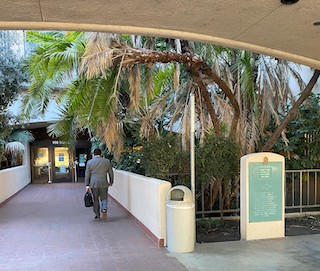On October 8, 2021, Governor Newsom approved Assembly Bill 1540 to set forth more detailed procedures for hearings on recall of a sentence under former Penal Code § 1170(d), which has been moved to a newly created section, Penal Code § 1170.03.
Section 1170.03 specifies that a judge receiving a recommendation for recall of a sentence, often from the Secretary of the California Department of Corrections and Rehabilitation (CDCR), the Board of Parole Hearings (BOPH) or the prosecutor, shall apply any changes in law that reduce sentences or provide for judicial discretion in order to eliminate sentencing disparities. Penal Code § 1170.03(a)(2).
The new procedures also permit the court two options in acting on the recommendation, regardless of whether the conviction was by trial or plea: 1) reduce the petitioner’s term by modifying the sentence; or 2) vacate the conviction and impose judgment on a necessarily included lesser-included or lesser-related offense, whether or not charged or with the prosecutor’s and defendant’s concurrence, and resentence to a lower term. Penal Code § 1170.03(a)(3).
A judge may also consider postconviction factors including disciplinary and rehabilitation records (from the inmate “C File”), evidence reflecting whether age, time served, or diminished physical capacity have reduced the defendant’s risk of future violence, and evidence of changed circumstances indicating continued incarceration is no longer in the interests of justice. Penal Code § 1170.03(a)(4).
 San Fernando Courthouse
San Fernando Courthouse
The new law also states that the judge shall also consider if the defendant has experienced childhood trauma, violence, or human trafficking, was a youth at the time of the offense, and whether those were contributory factors to commission of the offense. Penal Code § 1170.03(a)(4).
Assembly Bill 1540 requires the judge to state his or her reasons for granting or denying recall and resentencing. Penal Code § 1170.03(a)(6).
In response to a quite sad recent reported appellate court decision by the Second Appellate District, People v. Jose Alex Mendez (involving Judge David Gelfund in the San Fernando Superior Court), wherein the judge summarily denied resentencing of a prisoner after the CDCR recommended recall and resentencing.
AB 1540 requires that when the CDCR makes such a recommendation that notice be given to the defendant, counsel appointed, and a status conference set within 30 days after the court receives the recall recommendation, and creates a presumption favoring recall and resentencing, which can be overcome only upon a finding the defendant is “an unreasonable danger to public safety.” How exactly “an unreasonable danger to public safety” is defined is not known.
In the Mendez case, Judge Gelfund denied resentencing without notifying defendant of the opportunity to submit new evidence or be present for such a hearing. Judge Gelfund also did not notify the prosecutor of the CDCR’s recommendation. Instead, he simply took the matter in chambers and denied resentencing with no hearing and without giving notice to anyone.
Under the new law, AB 1540, resentencing cannot be denied without a hearing. The new law provides that a remote appearance by a defendant at the hearing is sufficient unless the defense requests to be physically present in court. Penal Code § 1170.03(a)(8).
The bill’s motivation, however, does not seem to be only Judge Gelfund’s conduct in that case. The Legislature acknowledged the need for resentencing for many due to an aging prison population, costs, the inefficacy of lengthy prison sentences, decreasing crime rates, evolving public views on incarceration, and the need for courts to give more weight to recall recommendations.
Lastly, the bill recognizes that AB 124 (relating to sealing and vacating convictions due to intimate partner violence and human trafficking) and SB 567 (presumptive resentencing to middle term or lower unless stipulated factors in aggravation are described or found true by a jury) were also pending at the time AB 1540 was pending and states that it is intended to operate in concert with each of those bills.
We think Assembly Bill 1540 is an overdue measure insofar as a judge should not be able to give a CDCR recommendation for recall and resentencing an in-chambers denial without notice to defendant or the district attorney, but also appreciate how backlogged our courts are now with other new resentencing laws such as AB 775 (extending SB 1437 relief to manslaughter and attempted murder) and the hundreds of cases awaiting jury trial, trials that did not take place due to social distancing brought on by COVID-19.
For more information about resentencing, please click on the following articles:
 San Fernando Courthouse
San Fernando Courthouse